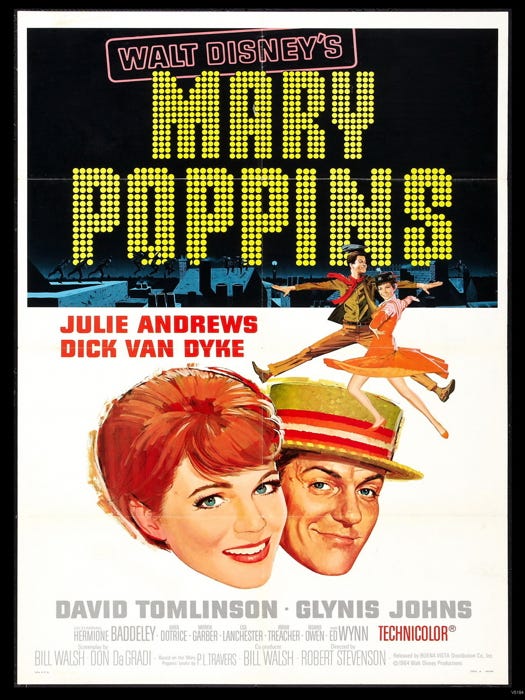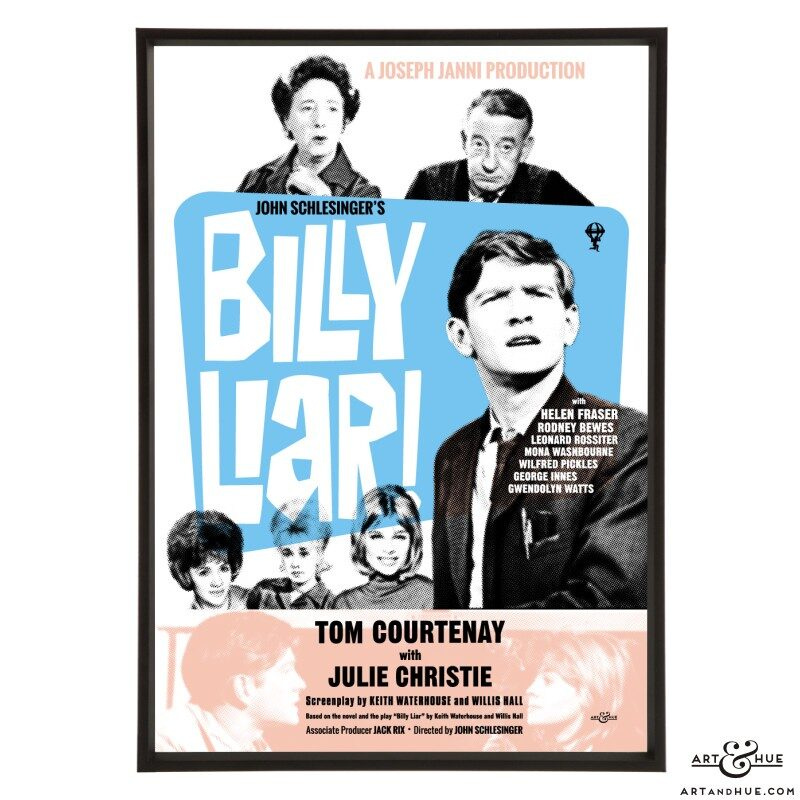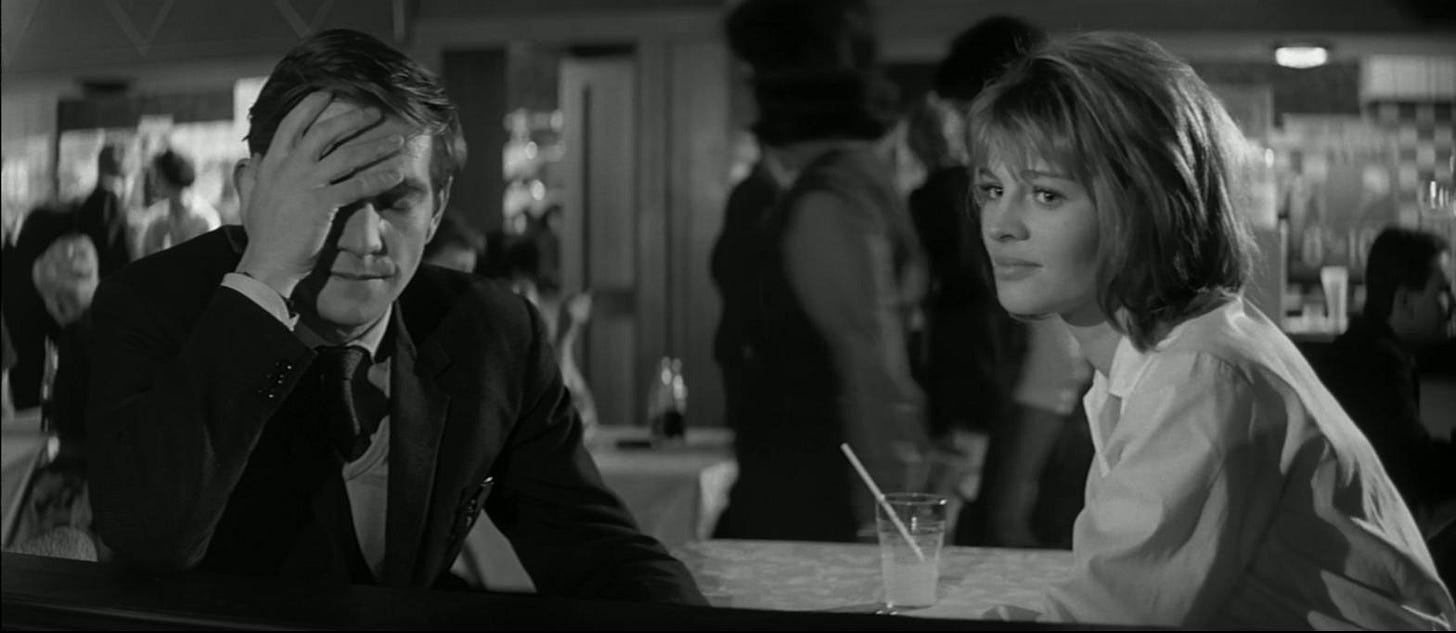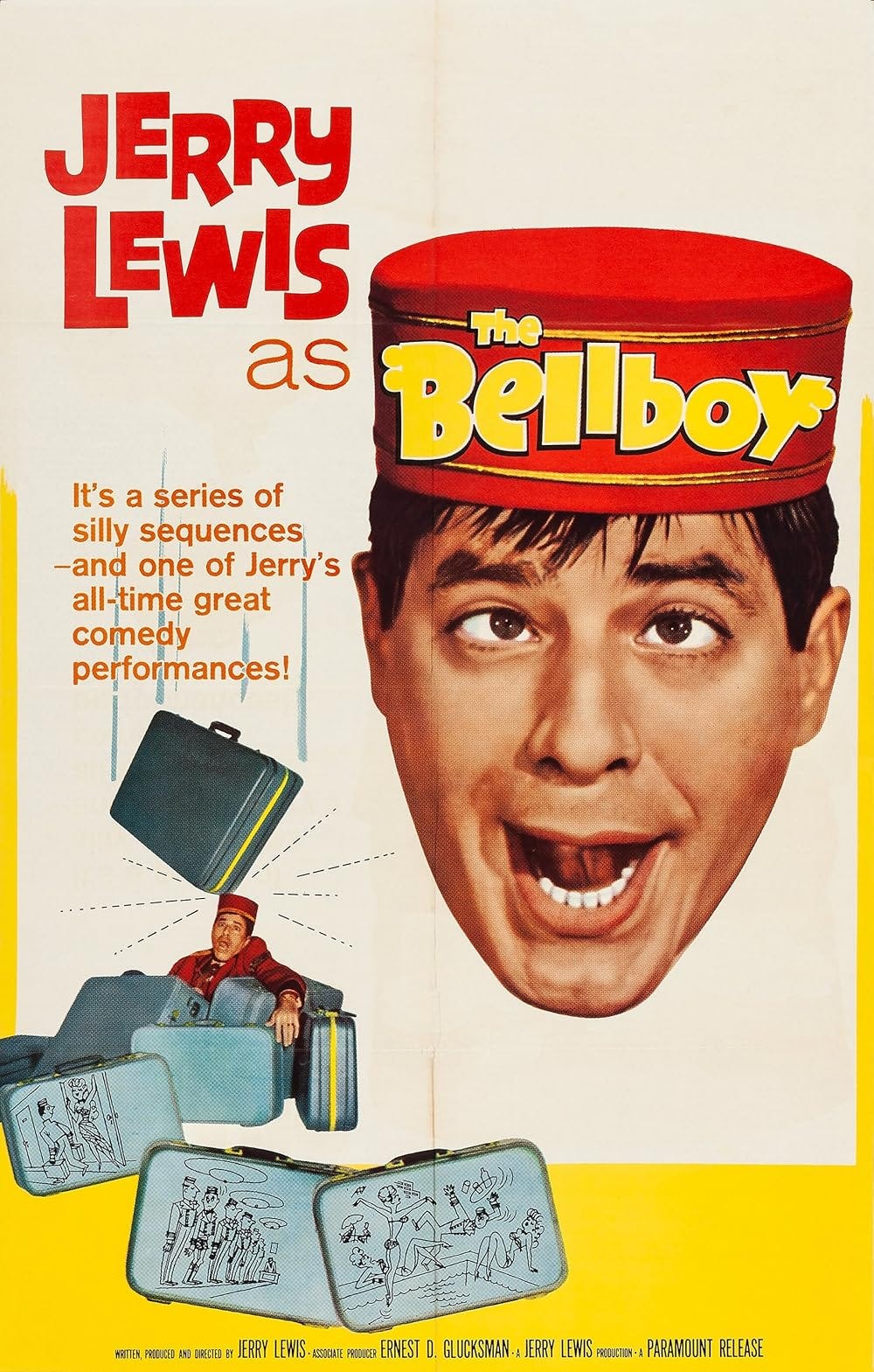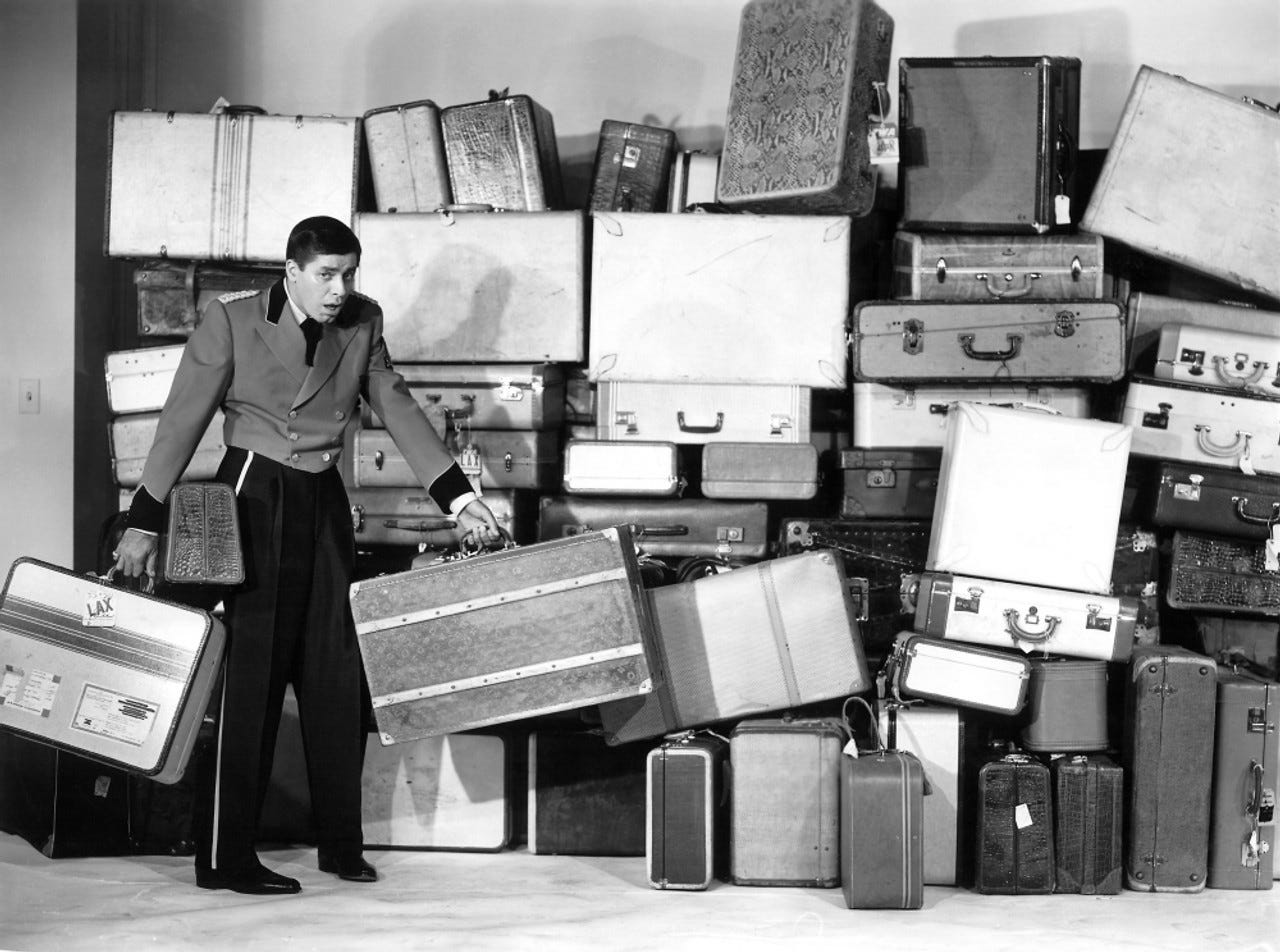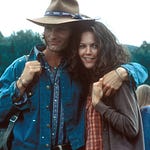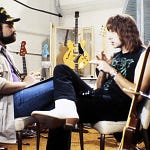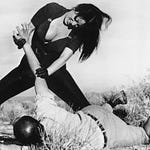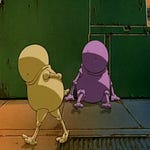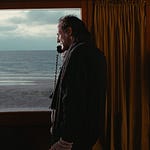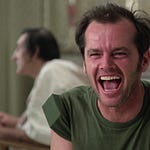Who does a full warm-up season for a podcast?
One of the things I love about podcasting is how deeply independent it is. You can produce a show for almost nothing, and while there are certainly podcasts that are pushed by big money interests with big names attached, there are way more podcasts that were created by unknown people with a good idea, and they’ve managed to carve out a space for themselves based entirely on the strength of the show.
It’s harder and harder to do something like that in film or television. The cost of production is astronomical enough, but at this point, anything that has anything less than a massive marketing budget is going to disappear without a trace. With podcasting, the initial cost outlay is so low that you can give things a chance to grow.
With Aundria, Craig, and I, we’re all in different places, both geographically and in terms of our lives. That’s part of what I like about the chemistry on the show, but it means we don’t have a ton of time to hang out together. These warm-up episodes were suggested as a way to work out our technical issues by actually recording things, but also to give us a chance to figure each other out before we started introducing guests into the mix.
As a result, now that we’re recording with guests, I feel like we’ve got a solid chemistry that serves as a foundation, and introducing new people into that mix every week is yielding some fun results. As I prepare to publish this warm-up episode, I’m also about to record an episode with a guest I’ve never met before, and I’m so excited because their picks were so much fun and because I can only imagine what kind of conversation we’re going to have as a result.
One of the things that entertained me so much as we were recording these was seeing how Craig and Aundria interpreted each of these decades. I don’t think any of us picked films that are stereotypical to their decades, and it makes this such an interesting exercise. It would be easy to pick something like Easy Rider as a film to sum up the ‘60s, but that wasn’t what any of us had in mind.
So what did we pick?
Well, take a spoonful of sugar, pull up a chair, and listen for yourself. In the meantime, if you like what you’re hearing, please rate and review the show on Apple Podcasts or Spotify, and tell people about it. If this show’s going to grow, it’s going to be because you’re enjoying it and you’re getting other people to listen. We appreciate you being here for the beginning of this, and I hope you enjoy this one.
DREW: Hi, everyone. My name is Drew McWeeny, and welcome to The Hip Pocket.
Everyone has got movies they love… good movies, bad movies, movies they love for all sorts of reasons, and we carry them around in our hip pockets just waiting to share them with other people. That's what I've been doing in print for the last 25 years, and now I have invited some of my friends to talk about those films with me as well as the films that are important to them. And you're invited to join the party every week.
I am joined as always today by my band leader and my good friend Craig Ceravolo. Craig, how are you?
CRAIG: I'm great. How are you?
D: I'm good. I'm very good. I'm very excited about today, and we could not do any of it without the wind beneath my wings, Aundria Parker.
AUNDRIA: Oh my goodness. You are the James Con to my Bette Midler as always.
C: There we go!
D: Oh my goodness. Look at that. Excellent. I can't… I can't wait until I call you the Freebie to my Bean. So here we go.
C: Can I… can I be the Barbara Hershey?
D: I really enjoyed the ‘50s conversation we had, and I think part of what I liked about it was that we get these pictures of these decades in our heads, you know, especially because of the movies about the decades, but those pictures are really at odds with the reality of what it was like to live through those times. And I think with the ‘60s, there is probably no greater gulf between how it is portrayed on film and how it must have actually felt. This was the decade of JFK, the birth control pill, the Berlin Wall, the Bay of Pigs, the creation of OPEC, Freedom Rides, the Space Race, the Peace Corps. James Meredith enrolled at Ole Miss. The Civil Rights Act passed. Cigarettes suddenly caused cancer. Everybody got assassinated. The Voting Rights Act passed. PBS was created. They performed the first successful human heart transplant. We walked on the moon, and we elected Nixon president. So, you know… mixed bag.
And I think in the ‘60s, there's two really distinct things. I think in the first half, it's sort of the Mad Men/Bewitched ‘60s, where everybody was in suits and everything was still kind of polite, but there was friction happening just under the surface.
And then there's that whole Woodstock/Kent State sort of hippie ‘60s, the, the second half, and they couldn't be more different. So I felt like it was a really difficult exercise in some ways to find one film that sums up the decade for you. And, Aundria, one of the things I loved about your pick is that although it is a deeply ‘60s movie in every aesthetic way, it is not interacting at all with the stereotypical notion of what we think of as the ‘60s. It is just a stone-cold classic that happened to come out in 1964.
So please tell us, why did you pick Mary Poppins?
[clip from Mary Poppins plays]
A: Mary Poppins. I was gonna say, it doesn't really touch reality at all with the ‘60s. It is, you know, it's taking place at the little after the turn of the century right around… I grew up thinking that this movie was very special. My mom had told me a thousand times this was the first movie she saw in the theater. So this movie held magic for me as a kid. And as I've watched it as an adult, you know, being a fan of Roger Rabbit and all these other films that mix animation with live action, this one does it really well. And it did it really well how long ago? Right? In the sixties. I always thought that Dick Van Dyke's accent was real until I learned what a real accent sounded like. So that's a fun fact about me. I obviously never heard a real British person before.
C: They all sound exactly like that.
A: Yeah. It it just, you know, it's just charming.
D: I’ll say, he got it just right. Spot-on.
A: Yes. Just ask anybody in England. Yeah. It's just… it's charming, but it's also deeply melancholy at times, which I, you know, welcome to life. I, just… it's charming, and I enjoy it so much. I wanted to share it with you guys.
D: Well, it's funny because it is a film that I, you know, grew up with as well, and then had not revisited until I had kids. And if there is any movie from the Disney catalog that changes and becomes a completely different film when you grow up, it is Mary Poppins. Because you see it as a kid, and it's an adventure movie. Like, you get to go on an adventure with Mary Poppins, and it's cool, and you get to go inside the paintings and stuff. It is not the kids' movie, though. And as an adult, when you watch it, you realize the movie is about their father and about what he has lost and all these things that he has had to give up in order to be what he thinks of as the proper British father, and Mary Poppins… it's literally just about making mom and dad realize what they're missing. And, man, by the time they get to don't… by the time they get to “Let's Go Fly A Kite” at the end, if you are a parent and you are not a sobbing ruined mess by the end of this film, I don't know what you're doing because it kills me every time now. I cannot watch this around my kids. It destroys me. Craig, was this a.. was this one you grew up with as well?
C: I did. Yeah. Every time I, I think of the, what was it? The Sunday Night Disney Movie? You know, that they did on ABC? And this, this would come on and, you know, it just, I’m very nostalgic about it, but you're… I'm like you, Drew, I had not watched it in years. I had definitely not watched it before I'd become a parent. So… same visceral reaction to it, because you're right. Mary Poppins has no arc in this movie. Right? She's the same when she comes in and when she leaves. And so you realize that the the arc is coming from the parents and, and how they're not paying attention to their kid. I'm almost getting a little emotional thinking about it….
D: Yeah. No. It does that to me every time, and it's crazy how much it does it to me. It's…
C: Yeah.
D: I think part of it is that the world is so fun, that they do such a good job of setting up the time and place of this thing, and I love the music in the film. I think it might be one of the best Richard Sherman and Dick Sherman song scores. I think every song works. “Feed the Birds” is one of those great melancholy Disney tunes that just kinda breaks your heart. But all the big songs, all the fun songs are so much fun, and… it is really crazy to think of… Mary Poppins is a device in this movie. She's really a supernatural thing that gets dropped on you…
C: Right.
D: … to make you change. And I, I kinda wish they had made more of these with Julie Andrews so that we could have seen other families and kinda seen how she… because I think her performance is so special and so one of a kind. And it's funny because, you know, she was married to Blake Edwards. And when you watch the stuff they made together, especially, like, S.O.B., and you realize, okay, Blake was a party monster. Blake threw these crazy fucking… and she was his wife. Clearly, Julie Andrews was a party monster. Like, you, you have to, at some point, realize, oh, she's not…
A: Mary Poppins liked to party. Yes.
D: This, this was such a… this did such a firm job of cementing who she was in people's consciousness that I truly think most of the rest of her career is a reaction to it, of trying to remind people “I am more than this.” But sometimes you are just perfect for something and it becomes impossible to separate you. I can't imagine My Fair Lady with her in it. I think Audrey Hepburn is right for that. I can't imagine, you know, this without Julie Andrews. Like, it all worked out the way it was supposed to at that moment.
C: Right.
D: And everybody got the perfect role. Everybody's iconic in the thing they ended up doing.
C: So, explain to me again why… I, I can't remember why why you mentioned that. Like, she's the… she sings in My Fair Lady, right?
D: Well, she was, she was the Broadway…
C: Right, right, right.
D: She was, she was the original Eliza Doolittle on Broadway. And everybody saw the performance and said, “Oh my god, that has to be preserved. That's the performance to record.”
C: Right. Okay.
D: She didn't get the film role because Audrey Hepburn was a bigger star.
C: Right.
D: And even though she couldn't sing and they had somebody else do the singing, they wanted Audrey Hepburn.
C: Got it.
D: And so everybody in town was salty about it. And, like, “Why? Why would you do it?” And then she ends up… and then Julie Andrews ends up winning Best Actress that year sitting across from Audrey Hepburn for playing Mary Poppins. So I do think everybody got what they should have gotten. I think that this movie would not have been as special without Julie Andrews. And it is something about that brittleness of hers along with the sweetness that makes it so right. It's… you know that Mary Poppins, if you step out of line, will fucking crush you.
A: She's a… she's a little scary.
[clip from Mary Poppins plays]
A: She's sweet, but she's a little scary. Yeah. Yeah.
C: Yeah. That's interesting that you said that that to see what she does to other families. I would have liked to have seen this as, like, a series. Like Highway to Heaven.
A: (laughs)
D: Yeah. It really… I, I do think there's something very special about what… what she is in that film and, and that idea of her waking a parent up. And, you know, I also think this is a movie made when Walt was still there.
C: Okay.
D: And I have a real fondness for that era of Disney. I think it's a very different thing. I think it's a totally different studio. Everything that's come afterwards is a company trying to kind of stay afloat. But Disney pursued a very specific vision, and his adaptation of this character and what he did with it and the way he believed this could work, it's really not the book, it's really not exactly… like, his… he had a very clear vision and I think he was right. I think it's a really amazing… and the technical accomplishment for 1964.
C: Oh, my god.
D: The mix of the animation is flawless. It's still absolutely flawless when you look at it. I think it's timeless.
A: That's the… I was gonna say that it really speaks to… it's timeless.
D: Timeless in a way that only the Walt movies really are.
C: Mhmm.
D: Where they feel like you could you could watch them right now, and they'd feel brand new. You could watch them 30 years ago, and they felt like… they always kinda magical about that, and I, I don't think anybody who's come after has ever really tapped into the same thing.
C: No. And, and I watched Mary Poppins Returns, which I had not seen. Well, that came out a couple of years ago. Was that Emily Blunt? Yeah. Not great.
D: No. It's it's it's frustrating because, you know, Blunt Yeah. Not a bad choice.
C: No. Not at all.
D: And even the idea of the kids have grown up and now they have their problem, that's not a bad idea.
C: I guess.
D: But, man, the music just… it's like Wonka. It's trying to go up against the movie that has had 50 years of worming its way into people's hearts and has some of the most insane earworms of all time. And then you make a musical with not one memorable tune.
C: Oh, god. That's a, that's a harsh… that's a harsh verdict you just put on that.
D: I I did not care for Wonka at all. And it was… and it's the same thing. It's that frustration of, A, that's not the character I recognize. And I understand it's supposed to be before and everything, but still, it's, it's a character… that performance is so indelible that if you're going to try to do something that lines up with the Gene Wilder performance… giant shoes to fill. And I don't think, I don't think Tim does it.
C: So it's a prequel to that one and not the other one?
D: It's absolutely a prequel to that one, and the only reason I know that is because of the Oompa Lompas. The only good thing in the movie is Hugh Grant as the only Oompa Loompa you meet, and he is clearly… orange face, green hair. He plays the little flute. He sings “Oompa Loompa,” the song, at one point.
C: Okay.
D: And they even play “Pure Imagination” at the end. So they are wanting you to think of the ‘71 film.
C: I'm fine, then.
D: But every time they do that, every time they hold themselves next to it, you go…
A: That's how I feel. I'm fine.
C: I'm okay. I'm, I'm okay.
C: Sorry to hear that. Yeah.
D: Yeah. Yep.
C: Anyway… oh, wait. we were talking about Mary Poppins.
D: Okay. It's, it's the idea that, you know, these movies… Mary Poppins is a very tough act to follow, and I do think that it's, it's because everybody working on it was at the absolute height of their craft, and the Shermans, in particular, were just firing bangers one after another when they were writing songs for this film. Yeah. Tough to clear, man.
C: Well, I loved… I loved revisiting it. Thank you, Aundria, for choosing it.
A: Oh, my pleasure. Absolutely. I love making you guys cry. You know that.
C: Well, it's not hard to do. We are a couple of softies.
D: Yeah. Yeah. I think that is going to be something that becomes very clear over the course of this show is that I… there was a flip… there was a switch that flipped at some point because I didn't used to be like this. And I think it was after I had kids where I just… waterworks, man. I am Niagara Falls at the drop of a hat now.
C: My daughters make fun of me.
D: Fine. Okay.
[clip from Mary Poppins plays]
D: So there was a point, in the late ‘90s when my writing partner, Rebecca Swan, and I were working in New York a lot, and we met with a bunch of different companies about things they were developing. And one of the projects that someone owned the rights to, and I'm trying to remember if I have this right… I think Madonna's company actually owned this. They had the rights to a remake of a very particular English film, and we ended up watching it, like, ten times in six weeks trying to find a way in. And we passed on it eventually, because I don't really think there's much point in trying to remake something as singular as your pick this week, Craig, John Schlessinger's 1963 film Billy Liar.
[clip from Billy Liar plays]
C: Yeah. I can't explain to you why I picked it. And I… you know, there's plenty to… the ‘60s, there, there's so many things that you could pick, and I don't know why I landed on this, but I just love Tom Courtney. I just think he's amazing in the ‘60s. You know, my first pick was gonna be, you know, Loneliness and the Long-Distnace Runner…
D: Great film.
C: That is, yeah, but way too depressing. Right? I mean, it's…
D: Yeah.
C: But, but I, I, I think this is fun. It's weird. I had not visited in a while. So going back and and looking at it with a 2023 lens was a little… he's got some issues. He's not…
C: Billy's a nut. Yeah. Billy's a bit of a creep.
C: Yeah. He's, uh, creepy. He's a little creepy. But, you know, also, Julie Christie. I love Julie Christie. So, you know, I don't know. But I'm very curious. You know, it's, it's ‘60s. It's mod, but it's, it's, it's funny, but it's, it's absurd. But it, it… I don't know. And there's also a great Yo Lo Tango song called “Tom Courtney” that's a… I don't know. I, I just, I… again, everything is filtered through music, and I go from there. So that has a lot to do with it too. But I'm very curious to see, A, Aundria, had you seen it before?
A: I had never seen it. I love you for choosing it. I love when you guys pick movies that I have no… not only do I not know what they are or what they're about, but I know, you know, nothing about them. So going in blind for this thing was… oh my god. It was such a trip. It was, like you said, a little creepy at times, but super, like, charming and delightful and funny. Like, super-dry and funny. And there are scenes in this that I am going to be remembering for forever. It's just, there's, there's stuff in this that I hadn't seen before, you know, in other films. And whenever I can see something like that, it's always, you know, kind of a treasure. It's just a special…
C: And all of those weird accents are real.
A: What?
C: I'm so glad you liked it. And yeah. All those… that's a real British accent. But, yeah, I'm so glad you liked it.
D: {laughs}
C: Oh, so those are authentic? That's why I was having a really hard time understanding what they were saying. I was like, these accents are naughty.
C: “Hey, this guy doesn't talk like…”
A: Like he's chewing his own face off? I can't understand any of this. I need to put the subtitles on.
C: But it's, but it's very Northern. Are they in London? I can't remember, because it feels like it's very northern English.
A: They wanna go to, he wants to go to London. Yeah.
C: Yeah. London's… they’re not in London. He wants to go south to London.
D: Yeah. Yep.
C: Yeah. So, you know, he's a liar, hence the title, and lives in his own fantasy world where he's the ruler of the world and kind of a dick. But, I don't know. It's, she's… Julie Christie's, I think, the star of the show. But, Drew, you've watched it ten times. I wanna know why… what… I want that journey. Tell me all about that.
D: Well, I… it's, it's funny because I… it's a very different film than most of what Schlesinger has done. And…
C: Yeah.
D: He did a film very late in his career. Maybe his last film… was called Honky Tonk Freeway in ‘81. And it's crazy because you watch that and you're like, wait, this is the director of Midnight Cowboy, right?
C: Exactly.
D: And it's a redneck comedy about a town that pays a bribe to get an off-ramp built off the freeway so they can get tourism, and then they don't build the off-ramp. And so they go to war with the politician they paid off. And the movie's about the, like, two hundred people driving down from every place else who end up on the freeway right at the moment that they try to create an on-ramp. And so it spends an hour and a half, like, telling you all these different stories of people that will end up on the freeway at that moment. It's the craziest fucking attempt at a comedy, and you realize, I don't think comedy is his strong suit, like, broad comedy. This kind of comedy, though, is exactly his strong suit. I think there's something really great… and Billy Liar’s not trying to make you belly laugh… but there is a wry sensibility about how miserable Billy is.
There's a Wilco song, where the line is “All my lies are only wishes. I wish I could die, so I could come back new.” And I love… I think that's Billy Liar. I think he's a guy who is constantly, he's so fucking miserable and so… and knows that he's never going to do anything about it. It's not that he's miserable, and he's working on it.
C: Yeah.
D: He's miserable and he knows what his flaws are. He knows, “I'm not a good… I'm not this person. I'm not gonna do this. I'm not. I don't have the drive to go to London.” So the whole movie is, he's lying to himself as much as anybody else in the film. And it is really about him coming to a place where he takes one honest look in the mirror and hates what he sees. And it is so great the way the movie kind of concludes, and I love ‘60s and ‘70s movies that have these endings where it all kind of comes down to one moment or one gesture or one choice. I think this is a really good one.
[clip from Billy Liar plays]
C: Yeah. You know, again, Julie Christie, I think, had his number from the get-go. Because she's kinda…
D: Yeah. And she… she lets him go. It's not that she's, it's not that she believes any of it. It's that she's, like, “Alright. This is entertaining.”
A: Right.
D: Go for it. Let's hear it. Let's hear the…
A: She's going for the ride.
D: … the pitch.
C: Yeah. And she was she was gonna go. She like… I said… I wanna see the sequel to this where she has her London adventure. You know what I mean? It's like…
D: Yeah.
C: Well, not really. But, I mean, she's definitely the… he is such a…. there's no… he, he doesn't change, which is interesting to me. So, you know, who, who's, who's got the arc? Again, it's, it's her, I think.
D: Yeah. That… for a title character, he is definitely not the person who gets out of this.
C Right. Right. Exactly.
D: It the the real horror of this movie is at the end that Billy is trapped with himself, that
C: Yeah.
D: He’s 100% gonna wake up tomorrow and be the same person and have to do all the same shit and the same tap dancing and oh, it's just awful. The energy of being Billy.
C: Yeah. Now I'm… now I’m wondering, why… why did I pick this?
A: The fallout of the people around you.
[the song “Tom Courteney” plays]
D: I am last up this week.
C: Yeah.
D: And, and I gotta say my pick, kinda like Aundria’s film, is something that does not, at first glance, appear to have anything to say culturally about this decade or really any decade. But I think it is a genuinely important film in terms of American comedy, and I am dying to know what you guys thought of Jerry Lewis' 1960 directorial debut, The Bellboy.
[clip from The Bellboy plays]
A: Alright. No shock here. I'd never seen a Jerry Lewis movie before, so I certainly hadn't seen The Bellboy. My touchstone for him is the telethons, really.
D: I'm, I'm actually not surprised. I don't think his films are in circulation in the same way. So I think there's a lot of people who've grown up totally unaware of his film work except as… they know he did it, but they don't know anything about it.
A: Yeah! Mhmm. And then, you know, I know he was, he worked with Dean Martin and everything. So seeing him…
D: “I know the French love him! I know the French just think he's a genius!”
A: I know! They love him. So seeing him as, you know, at one of the, the peaks of his artistic career, you know, his directorial debut, seeing him young and handsome and doing this wildly goofy performance that has so many jokes in it, visual jokes and, and, you know, the, the dialogue and yet playing a silent role for the whole thing. There's this crazy energy to it that I was so surprised by.
D: I'm glad. I, I think Jerry Lewis absolutely soured as he got older, and I think there is a point in Jerry Lewis' life where he's almost intolerable. But it, it sort of clouds the fact or obscures the fact that there was an era where he was just throwing heat as a… especially as a filmmaker, as a director. I think his visual sense in this movie… I love the fact that it's scope. I love that he uses every inch frame for the jokes. Like, he there's nothing about the frame that’s, like, not considered or carefully thought out. He is absolutely aware of how to build a joke visually, how to sell it, how to time it. It is, it is an adept film, and I think he really learned from some of the filmmakers you worked with. There's a guy, we'll do some of his movies later that I really love, a guy named Frank Tashlin, and I think Tashlin had a huge influence on Jerry Lewis. Tashlin was not just a live-action guy. He also did some of the Warner Brothers cartoons, and he had a wicked comic sensibility. Just super, super smart and visual. I think Jerry absorbed a lot from him. I'm amazed how strong this is for a first-time director. Like, it is so cleanly composed that you would think he's been doing this his whole life. Craig, are you… did you grow up watching Jerry's films? Or…
C: You know, I know all the, the Rat Pack stuff where he's, you know, [as Jerry Lewis] “Lady!”, you know, that goofiness? And, and then King of Comedy, of course.
A: Yeah. Right?
D: So King of Comedy…
C: … which is…
D: Yeah, that's a real touchstone for people our age. Because I do think by the time we were starting to watch movies, that was it. That was the big one.
C: Yeah. Yeah. And, and I don't think he was really acting.
D: No. No. No. Angry Jerry. I, I love angry Jerry stories. I know so many people that have… hell, Patton Oswalt has stories because he used to do live readings once a year of The Day The Clown Cried.
A: Oh my god.
D: And he got, he got… one night, they were about to go on, and Jerry's lawyer showed up.
C: Can you get him… can we, can we get him on so we can talk about that?
D: Oh, I would love to. Absolutely.
C: Okay. Alright.
D: And his lawyer just reigned fear on Patton. It was like, “Oh, no. No. Just go ahead. Just, just read it one more time in public and see what happens. We will destroy you.”
C: My god.
D: And he was like, “Oh, okay. Okay.”
C: “Okay. Never mind.”
D: Ended the tradition instantly.
C: But, but but, you know, any artist, you know, actor, musician, you know, they wanna flex their talents, and I think it was a bold choice. It's almost like a silent, you know, it is a silent for him…
D: Yeah.
C: … performance. You know, it harkens back to, you know, your Buster Keaton, like, all of that, Charlie Chaplin. And that takes a lot of skill to be that goofy. You know what I mean? Like, to have that kind of odd or screwball or definitely that physical comedy is… is a lot harder. He makes it look easy, and it's not. Right? So that that was really fascinating to me.
D: He had to literally create the modern video playback system that every film uses now on every set that allows you to watch a take right after you do it, he had to create that because he needed to be able to see his physical takes and where he was in a frame and understand whether or not he got what he was looking for. So he's the creator of that. Everybody else who has ever used it owes that to Jerry Lewis.
A: Wow. That's amazing.
D: Yeah. This is the movie where he innovated it. He had a film he taught film school for a while, and I truly think there is a generation of people that are better filmmakers because of the things he contributed to the language.
C: How old was he when he directed this?
D: 30… ish?
C: Okay. So yeah. So young. I mean, that's young.
D: Yeah. Yeah. He was he was young, and he was, he very much knew what he wanted to do with the rest of his career. And I do think the break with Dean was not about “I hate Dean.” It was about “I have a very specific vision of what I think funny is.” And Dean was happy making certain kinds of sort of low-key, charming, amiable movies, and I think Jerry really wanted to do this. And when you watch The Patsy or The Errand Boy or this or The Caddy, those films are all black and white, beautiful scope, and just… they have this wicked comic strip nonstop machine gun delivery that I love. Yeah.
C: So Wait. So Nutty Professor was before this. Right?
D: Nutty Professor's after? ‘64, I think?
C: Oh, okay. Alright. Interesting. I'm…
D: Yeah. Because that's… again, he directed that, and, and that's a beautiful color…. like, that is one of his first color films and gorgeous, really well-made, and, again, has a great cartoon sensibility. He understands exactly what movie he's making there, the Jekyll and Hyde riff that he's doing, and…
C: Right.
D: He knows how to sell Buddy Love. He knows how to set, like… he's a, he's a smart filmmaker. I like him a lot. For sure.
A: I was so pleasantly surprised by this one. I really was.
D: I'm so glad. Was there, is there a gag sequence? Because I have a favorite gag sequence in the film. Is there a gag that particularly jumped out at you?
A: It's… there's so many. Right? I, I love the sculpture scene. I thought that was great. I love the elevator scene.
D: The elevator is the one that kills my kids.
A: Yes.
D: Every time.
A: And the chairs. The whole chair thing, I thought was…
C: The chairs! The chairs!
D: Awesome.
A: Yeah.
D: The chairs is so great, and it's… and I love that he is, he walks that fine line between “idiot who can't win”...
C: Right.
D: … and “guy who, because he's an idiot, wins constantly”.
C: Yes.
A: Yes. Yes.
D: And it's that we…
C: And how..
D: And I love that it's mainly about what it's going to do to the people around him.
C: Yeah.
D: What's, what's gonna cause the best reaction?
A: Yeah.
C: It's… the other staff are so frustrated by his stupidity, and it just, it's my favorite thing about it. But, yeah, the moving of the, of the luggage was really fun… in the lobby. That's a good… yeah. God, man. It's… you're right. There's so many to choose from.
D: You can't go home. That's the best. And it's very much… it's a record of its moment. Milton Berle showing up is… you feel like…
C: Oh, yeah.
D: I mean, Milton at that point was basically done. This was the, the end of his arc as a performer. So it was kinda like, “Hey, it's Milton Berle on his way out the door.” But it, it's, it's very much… the moment that he switched from being “and Jerry Lewis” with Dean Martin to being the star of the show, and I think very few people have ever made that transition quite as gracefully.
[clip from The Bellboy plays]
D: Well, listen, I, I am very happy we got to do this. I'm happy that we got to talk about three films that are very unusual ‘60s picks.
C: Absolutely.
D: And kinda sidestepped all the stereotypes of the decade in the process. And I'm really excited that next time, we're gonna be doing the ‘70s. This is the decade where I made my first appearance.
A: Yay!
C: Same here.
D: And where I think movies got fucking crazy, man. I think this is, this is the decade coming up where everything starts to really explode. So, I can't wait for your picks for next time, and, we'll see you in two weeks.
[the Hop Pocket theme plays again]



